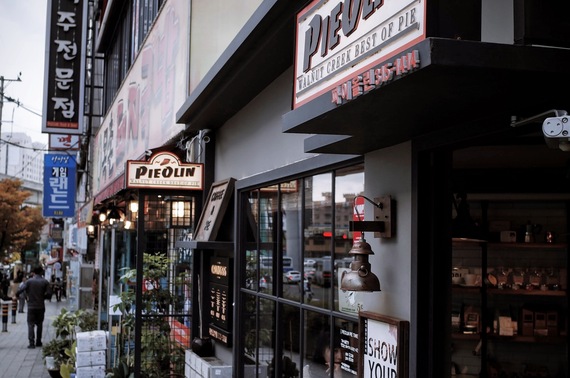Every business looking to have a long term identity and presence in the corporate world needs to have some sort of "nerve centre" of operations, a location identified with their business. Now getting a suitable and cost effective location can be a bit of a challenge coupled with the option of leasing a property or buying it outrightly.
The dynamics of choosing to lease a property or buy it needs to be well thought out and weighed in order to make the right choice as a business.
Below are six factors every business should consider before leasing or buying that property.
1.Extent of Control Over Property
A rented property kind of limits the amount of control you have. For instance, there's a limit to what you can do with the property without the landlords permission. Things like altering the outlook of the building, renovations and building extensions would most likely require the authorization of the landlord who may not be cooperative.
If your business is such that requires a certain structure type, the best bet is to do an outright purchase. With a purchase you have absolute control without having to answer to anyone or seeking consent.
However, where your capital is not enough to cover convenient property, renting may still serve, while you make do with makeshift structures and alterations in the buildings in the even t that the owners do not permit wholesome changes.
2.Landlord Drama
If a business cannot run smoothly without intermittent and annoying interjections from property owners, then that business will not grow very well. If peradventure, your business cannot afford to buy a property and would rather rent for a few years, you have to ensure that your landlord is someone who is trustworthy, understanding and can maintain a good relationship to avoid cases of cheating, bullying and threatening. Most likely rent from someone who is looking to rent out property for business purposes and not someone you would have to convince to do so.
In the event that things take a downturn between you and your landlord, there are also a few things you can do. For instance, you need to have a legal contract ab initio protecting yourself rights in case. Having a legal contracts helps to define and know the things you can and cannot do as a tenant and also what your landlord is allowed and not allowed to do in his/her position.
3.Think About The Cost
Leasing a property is cheaper when you consider the paying of huge sums at once as against buying a property which is definitely more expensive. However, leasing a property would likely turn out to be way more expensive after factoring in the years the property would be leased out for and adding up the yearly or monthly payments.
Landlords also like to maximize the profit they make from leasing out a property because most times they bear the cost of maintenance. It can be advisable to buy rather than rent assuming you have the upfront capital to fund it,you also save money through tax as the money used to buy a property is not susceptible to deductions unlike rent money which has tax deductions added to it.
However, most importantly, it is necessary for every business to budget the funds available to either lease or buy a property and if the incoming cash flow can sustain the investment and all the other added costing like subsequent payment (if the payment is in installments), running costs, renovations, etc.
4.Structural condition
How's the structural condition of the building you're renting or buying? I'm sure you don't want to incur extra costs in the form of maintenance. You need to do a proper scrutiny of the building and its premises, know and understand what the property was used for before it was put on the market.
This would enable you to know the extent of usage of the building and the possible faults that might arise in future and prepare for the cost of fixing or creating new structures (for instance, creating a car park). For leased properties, most place the cost of maintenance on the landlord but if peradventure, you purchase a building in bad structural condition, the cost would be on you.
5.Location
Business is all about location, for instance, a Car wash and Auto care business would thrive very well by the road side, but not very well in a residential area.Is there a good road network, sufficient parking space, decent security, minimal noise levels and no area related incidents.Consider all the factors as much as are relevant to your business before committing to a location.
Also, while checking out a property location, it is better to do it with a long term mind-set except in cases where the business is likely to move to a different location. A profitable place today might become non-profitable tomorrow and vice versa. You can do this by checking out trends or asking from people who have been in said area for quite a while.
6.Advantage vs. Threat
Every business looking to buy or rent a property should ask and answer this question; Are the advantages of moving into this property more than the threats? Would I earn more from this investment or would I lose more? This helps to know where your priorities as a business are.
For instance, there are cost saving benefits associated with buying a property in form of taxes while the benefits of leasing come in form of not paying for maintenance. Also if the property is too big for the current state of the business, the business can make money from subletting a part of the building which would be a source of income.
Staying in a business premise with undesired effects is like staying at home with a nagging wife, so choose wisely.

